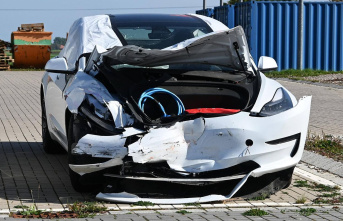Tesla (TSLA.O CEO Elon Musk's "super-bad feeling" about the economy may be the moment when the auto industry's bosses are not showing any concern.
In an email to executives, Musk stated that the electric carmaker must reduce its workforce by 10%. This was according to Reuters. Musk later stated to staff that the white-collar ranks in his company were overworked and that he would continue to hire workers to build cars and batteries.
Musk's warning was the first public and loud dissent by the auto industry to state that the underlying demand for trucks and cars remains strong in spite of two years of global pandemic. This week, one executive called demand "sky-high."
Tesla is not your typical canary in a coal mine. Morgan Stanley analyst Adam Jonas stated that it is more like a whale at the lithium mine. This refers to the metal used for EV batteries.
He said, "If the largest EV manufacturer in the world warns about jobs and the economy then investors should reconsider their forecasts for margins and top line growth." Tesla stock fell 9%.
Two years ago, the COVID-19 pandemic ravaged the auto industry and forced many factories to close. The subsequent shutdown played a part in the shortage of semiconductor chips that further hampered vehicle production.
Supply-chain problems, made worse by Russia's invasion in Ukraine, are dragging down sales. According to Wards Intelligence, U.S. new car sales ended May at an annualized rate of 12.68 millions. This is a far cry from 17 million cars per year in the past pre-COVID.
These issues affect supply mainly, but inflation can threaten demand.
Jeff Schuster, LMC Automotive's president of global forecasting, stated that the risk of recession was high.
Uber Technologies Inc (UBER.N), and Lyft Inc. (LYFT.O), ride-hailing companies, said they would reduce hiring and cut spending last month, while Carvana (CVNA.N), an online used-car retailer, said it would trim 12%.







